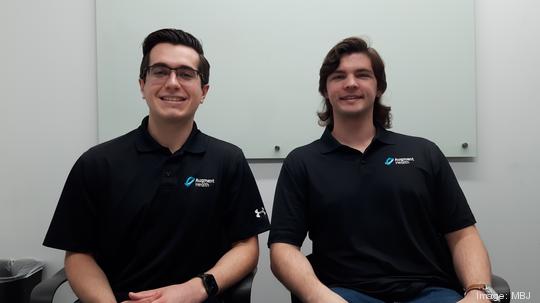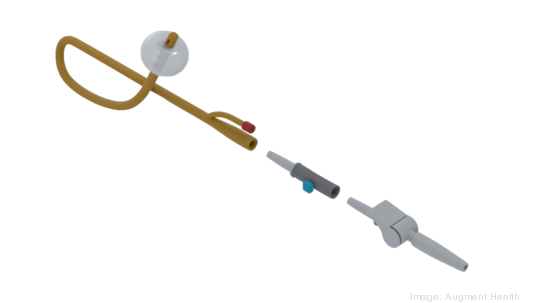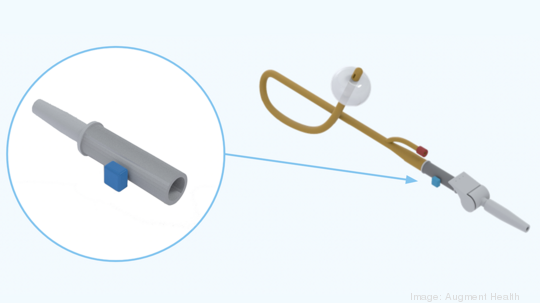
Jared Meyers and Stephen Kalinsky met in 2017, on the first day of their freshman year at Georgia Tech.
The two became friends. Both studied biomedical engineering. Both participated in hackathons: timed, festival-like events for computer programmers. And both developed an interest in startups — which would ultimately lead them to create their own.
Meyers and Kalinsky are the founders of Augment Health, a local medical device startup looking to improve the quality of life for people who have spinal cord injuries and use urinary catheters. Meyers is CEO, and Kalinksy is CTO.
The two started the company while students at Georgia Tech and moved to Memphis when their lease ended in September, as members of the fall cohort for Epicenter’s ZeroTo510 medical device accelerator. Currently, they live in an apartment Downtown and work out of Epicenter’s headquarters in the Peabody Place building.
“You’re not required to move here [for ZeroTo510],” Kalinsky said. “But, we’re in the program, we’re working full time on this, and the network we’re working with is here. We might as well be here where everything is.”
But, what exactly do they want their device, the Precision Bladder Management System, to do?
Before we get into that, let’s start by looking at the urinary catheter, a flexible tube typically used by people who have difficulty peeing naturally. The catheter drains the bladder. Often, it’s emptied into a urinary drainage bag attached to the person’s leg.
But, many don’t like having a pouch full of urine strapped to their body, and the bags can lead to health problems. Because the catheter is constantly draining, the bladder is kept empty, which keeps it from expanding and reduces its capacity. The regular drip of urine from catheter to bag also increases the risk of urinary tract infections (UTIs).
One alternative to the bag is a valve that fits into the end of the catheter and allows urine to be stored in the catheter and emptied straight into the toilet. It can be switched on to drain urine when the bladder is full, and switched off to stop drainage, giving the user more freedom and control.

Patients who have spinal cord injuries and are paralyzed from the waist down can’t feel when their bladder is full, which keeps them from using the manual valve.
This is where Augment Health’s product comes in.
“Basically, [we wondered] how we get everyone a valve, or what’s stopping everyone from using a valve?” Meyers said. “Because this seems like a great solution.”
The goal of the Augment device is essentially to let people who have spinal cord injuries know when they have a full bladder, so they can use a valve with their catheter, and not be limited to a urinary drainage bag.

A small, noninvasive device is connected and placed between the catheter and valve. It monitors the volume of urine in the bladder and lets the user know when the bladder is full and should be emptied, by sending a notification to their smartphone.
The idea for the product stems from the summer of 2019, when Meyers struck up a conversation with a urologist on a plane ride from New York to Atlanta.
Meyers and Kalinsky spent about six months doing research and chatting with urologists, learning about catheter-associated UTIs, the discomfort that came with urine bags, and the reasons people did — and didn’t — use valves.
Flash-forward to today, and Meyers and Kalinsky are in the thick of the ZeroTo510 accelerator and have a proof-of-concept that they’re working to scale down. Once the product is ready to go to market, they see it being a major improvement for people with spinal cord injuries.
"Once you restore that natural cycle of filling and emptying, you can maintain bladder health over time," Kalinsky said. "And then you also have this benefit of decreased infection risk. What started as a quality of life thing also has a bunch of clinical benefits."









